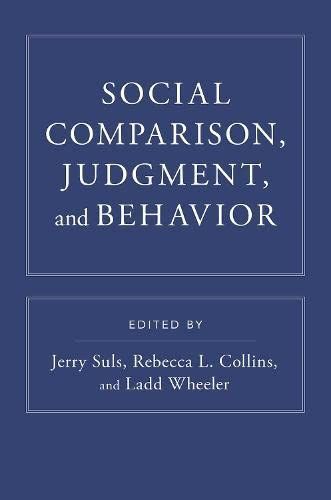
Social Comparison, Judgment, and Behavior
Comparison with other people, a core element of social life, influences self-concept, attitudes, conformity, psychological and physical well-being, achievement, educational outcomes, and social movements. Social comparison has become particularly salient as social and income inequalities have been increasingly recognized in the United States and elsewhere globally. This volume presents classic and state-of-the-science chapters by leading experts that survey the major areas of social comparison theory and research. Authored by noted experts, the volume is divided into three sections: Basic Comparison Processes, Neighboring Fields, and Applications. The first section is comprised of chapters that update classic theories and present contemporary advances, such as the dominating effect of local versus global comparisons, an analysis of the psychology of competition, how comparisons across different domains influence self-concept and achievement, and the integral connections between stereotyping and comparison. The second section introduces perspectives from related fields, such as the decision and network sciences, that shed new light on social comparison. The third section focuses on practical applications of comparison, including relative deprivation, health psychology, the effects of income inequality on well-being, and the relationship of power to comparison. This volume is a must-read for anyone interested in the field of social comparison and its implications for everyday life.